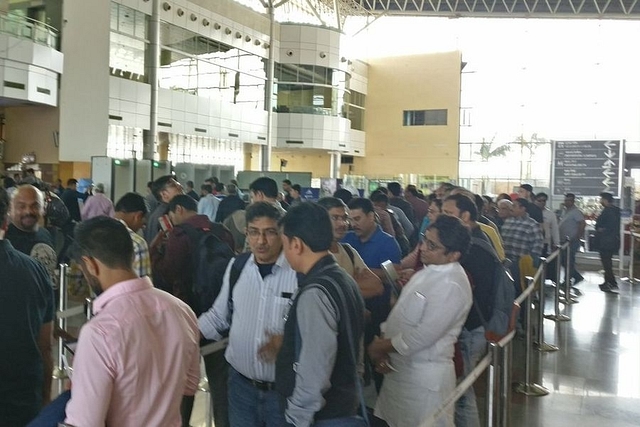
Indian Airports To Soon Be Frisk-Free: Body Scanners To Fasten Security Check, But Need To Adapt To Indian Clothing
Airports in India are all set to get body scanners from next year. This would mean no physical frisking of the travellers, reports Times Of India.
Indian airports are notorious for their long and arduous security checks due to shortage of manpower, deficient infrastructure tackling a large number of travellers. Over a year ago, Central Industrial Security Force had pointed out that the security infrastructure and manpower at airports had not been upgraded despite peak hour rush of passengers.
All this is set to change with introduction of body scanners which reduce human interface and resulting inconvenience to travellers. They would also check the increasing cost of security manpower.
However, the implementation of the much lauded technology is not without challenges. In the past, India’s Atomic Energy Regulatory Board did not clear full transmission scanners due to the harmful effect of amount of radiation they expose passengers to. Unlike these, active and passive millimetre wave body scanners are safer and expected to be used in the country.
“We will be issuing the specifications and regulations for active and passive millimetre wave body scanners by early next year. This is being done after their trial runs were conducted successfully (at some Indian airports),” said Bureau of Civil Aviation Security (BCAS) chief, Kumar Rajesh Chandra.
The scanner also require modifications to suit Indian conditions, like penetrating the layers of clothes unique to the country, like the chunnat (front fold) of a sari, lungis and pallus.